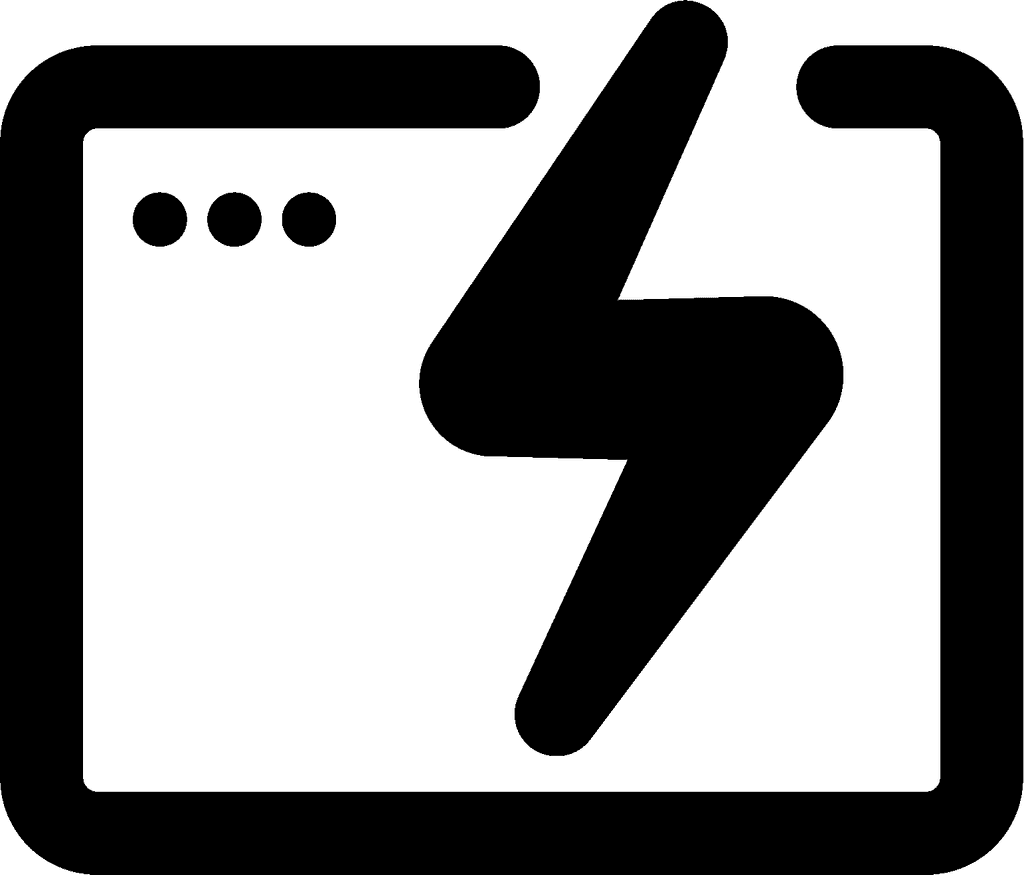AI ITSM: Revolutionizing IT Service Management for Enhanced Efficiency
AI ITSM is revolutionizing how organizations manage their IT services and support. By leveraging artificial intelligence and machine learning, ITSM tools can now automate routine tasks, predict issues before they occur, and provide more personalized support to end-users. AI-powered ITSM solutions analyze vast amounts of data to identify patterns, optimize workflows, and continuously improve service delivery.
These intelligent systems enhance incident management by automatically categorizing and routing tickets, suggesting solutions based on historical data, and even resolving simple issues without human intervention. AI ITSM also enables more proactive service management through predictive analytics and anomaly detection, allowing IT teams to address potential problems before they impact users.
The integration of AI into ITSM processes is transforming the role of IT support staff. Routine tasks are increasingly handled by AI, freeing up human agents to focus on more complex issues and strategic initiatives. This shift improves both operational efficiency and employee satisfaction, while also providing faster, more accurate support to end-users.

Fundamentals of AI in IT Service Management
AI is transforming IT Service Management (ITSM) practices, enabling more efficient and intelligent processes. This shift represents a significant evolution in how organizations manage and deliver IT services.
Defining AI and ITSM
Artificial Intelligence (AI) refers to computer systems that can perform tasks typically requiring human intelligence. These systems learn from data, recognize patterns, and make decisions with minimal human intervention.
ITSM encompasses the processes, policies, and tools organizations use to plan, deliver, and support IT services. It focuses on aligning IT services with business needs and ensuring customer satisfaction.
When combined, AI-enabled ITSM leverages machine learning algorithms and data analytics to enhance service delivery, automate routine tasks, and provide predictive insights.
Evolution from Traditional to AI-Enabled ITSM
Traditional ITSM relied heavily on manual processes and reactive approaches to service management. IT teams often struggled with time-consuming ticket resolution and limited visibility into system performance.
AI-enabled ITSM introduces automation and intelligent decision-making capabilities. This evolution allows for:
Automated ticket classification and routing
Predictive maintenance of IT infrastructure
Chatbots for instant user support
Anomaly detection in system performance
These advancements lead to faster incident resolution, improved resource allocation, and enhanced user experiences. AI-powered ITSM tools analyze vast amounts of data to identify trends and potential issues before they impact services.
The shift towards AI-enabled ITSM is a crucial part of digital transformation initiatives. Organizations adopting these technologies gain a competitive edge through improved efficiency and service quality.
Enhancing Service Desk with AI
AI technologies are revolutionizing service desk operations, improving efficiency and user satisfaction. These advancements streamline processes, provide faster resolutions, and offer personalized support experiences.
Chatbots and Virtual Assistants
Chatbots and virtual assistants have become integral to modern service desks. These AI-powered tools handle routine inquiries, freeing up human agents for complex issues. They offer 24/7 support, reducing wait times and improving response rates.
Chatbots can quickly access knowledge bases to provide accurate information. They learn from interactions, continually improving their responses. Virtual assistants use natural language processing to understand user intent and deliver relevant solutions.
These tools can escalate issues to human agents when necessary, ensuring seamless support transitions. They also collect valuable data on user interactions, helping organizations identify common problems and improve their services.
AI Service Management Tools
AI-driven service management tools enhance overall service delivery. They automate ticket categorization, routing, and prioritization, ensuring efficient issue resolution. These tools analyze historical data to predict trends and potential problems.
AI algorithms can detect patterns in system behavior, enabling proactive maintenance and reducing downtime. They assist in capacity planning by forecasting resource needs based on usage patterns.
These tools often integrate with existing ITSM platforms, enhancing their capabilities. They can automatically generate reports, providing insights into service performance and areas for improvement.
User Satisfaction and Experience
AI significantly impacts user satisfaction and experience in service desk interactions. Personalized support, faster resolutions, and 24/7 availability contribute to improved user satisfaction rates.
AI tools analyze user feedback and sentiment, helping organizations understand and address pain points. They enable more accurate tracking of key performance indicators related to user experience.
The use of AI in service desks often leads to more consistent service quality. It reduces human error and ensures adherence to best practices. AI-powered recommendations help users find solutions more quickly, increasing their confidence in the support system.
Operational Efficiency and Automation
AI-powered ITSM solutions dramatically enhance operational efficiency and automate key processes. These advancements streamline IT operations, improve service delivery, and optimize resource utilization.
Process Automation and Workflow Optimization
AI-driven ITSM platforms automate repetitive tasks and optimize workflows. Intelligent algorithms analyze historical data to identify bottlenecks and inefficiencies. This leads to streamlined processes and reduced manual intervention.
AI-powered chatbots handle routine service requests, freeing up IT staff for more complex issues. Machine learning models continuously refine workflows based on real-time data and user feedback. This results in faster ticket resolution and improved resource allocation.
Automated incident classification and routing ensure that issues are directed to the right teams quickly. AI systems can predict potential problems and trigger proactive maintenance, reducing downtime and service disruptions.
Impact on Service Delivery and Response Times
AI significantly improves service delivery and response times in ITSM. Predictive analytics help IT teams anticipate and address issues before they impact users. This proactive approach minimizes downtime and enhances user satisfaction.
AI-powered virtual agents provide 24/7 support, offering instant responses to common queries. These agents can handle a high volume of tickets simultaneously, reducing wait times for end-users.
Automated prioritization ensures critical issues receive immediate attention. AI systems analyze factors like SLAs, business impact, and historical data to assign appropriate urgency levels. This leads to more efficient resource allocation and faster resolution of high-priority incidents.
Asset and Knowledge Management Improvements
AI enhances asset and knowledge management in ITSM. Machine learning algorithms analyze usage patterns and performance data to optimize asset lifecycle management. This leads to better procurement decisions and reduced IT costs.
AI-powered knowledge bases continuously update and organize information. Natural language processing enables easier search and retrieval of relevant solutions. This improves first-call resolution rates and reduces the time spent on repetitive issues.
Predictive maintenance schedules based on AI analysis help extend asset lifespan and prevent unexpected failures. Automated asset discovery and tracking ensure accurate inventory management. These improvements lead to better resource utilization and compliance with IT policies.
Advance Capabilities in AI-Driven ITSM
AI-driven ITSM systems offer powerful capabilities in predictive analytics and proactive management. These advancements enable organizations to optimize their IT operations and enhance service delivery.
Predictive Analytics and Decision-Making
AI-powered ITSM platforms leverage machine learning algorithms to analyze historical data and identify patterns. This enables predictive analytics, allowing IT teams to anticipate potential issues before they occur.
Predictive models can forecast system failures, resource bottlenecks, and performance degradation. By analyzing trends in incident data, AI systems can predict future service disruptions with high accuracy.
Decision-making processes are enhanced through AI-driven recommendations. These systems evaluate multiple factors and suggest optimal courses of action for IT managers.
• Automated resource allocation • Capacity planning optimization • Risk assessment and mitigation strategies
AI-driven decision support tools help IT teams prioritize tasks, allocate resources efficiently, and make data-driven choices to improve service quality and reduce downtime.
Proactive Incident and Problem Management
AI-powered ITSM systems excel at proactive incident and problem management. By continuously monitoring IT infrastructure, these systems can detect anomalies and potential issues in real-time.
Machine learning algorithms analyze system logs, performance metrics, and user reports to identify emerging problems. This enables IT teams to address issues before they impact end-users or critical business operations.
AI-driven root cause analysis accelerates problem resolution. These systems can:
Correlate multiple incidents
Identify common underlying causes
Suggest targeted solutions
Automated incident classification and routing ensure that issues are directed to the appropriate support teams quickly. This reduces response times and improves first-call resolution rates.
AI-powered chatbots and virtual assistants provide 24/7 support, handling routine inquiries and freeing up human agents to focus on complex issues.
Integration, Security, and Compliance
AI ITSM systems require robust security measures and adherence to compliance standards while seamlessly integrating with existing IT infrastructure. Proper governance frameworks ensure responsible AI use in service management processes.
System and Data Security Considerations
AI ITSM platforms handle sensitive data, making security paramount. Encryption protects information in transit and at rest. Multi-factor authentication and role-based access controls limit unauthorized system entry.
Regular security audits and penetration testing help identify vulnerabilities. AI models must be protected against adversarial attacks that could manipulate outputs.
Integration with existing security information and event management (SIEM) tools enables real-time threat detection. Data anonymization techniques safeguard personal information processed by AI systems.
Secure APIs facilitate safe data exchange between AI ITSM and other IT management tools like ServiceNow. Proper key management and API authentication prevent unauthorized access to integrations.
Governance and Compliance in AI ITSM
Organizations must establish clear governance policies for AI use in ITSM. This includes defining roles, responsibilities, and decision-making processes related to AI systems.
Compliance with regulations like GDPR and HIPAA is crucial when AI processes personal or sensitive data. Regular audits ensure adherence to relevant standards and laws.
ITIL best practices can guide the implementation of AI in service management processes. Change management procedures help control AI model updates and retraining.
A Configuration Management Database (CMDB) tracks AI components and their relationships within the IT environment. This visibility aids in compliance reporting and risk management.
Ethical AI guidelines should govern development and deployment. Transparency in AI decision-making processes builds trust with users and stakeholders.
Frequently Asked Questions
AI is transforming IT Service Management through automation, predictive analytics, and intelligent decision support. Organizations are leveraging AI capabilities to enhance service delivery and operational efficiency.
How does artificial intelligence enhance IT Service Management (ITSM)?
AI enhances ITSM by automating routine tasks and providing predictive insights. Machine learning algorithms analyze historical data to identify patterns and anomalies, enabling proactive issue resolution.
AI-powered chatbots handle simple user queries, freeing up human agents for more complex tasks. Natural language processing improves ticket classification and routing accuracy.
What are some examples of AI applications in ITSM?
AI-driven incident management systems automatically categorize and prioritize tickets based on urgency and impact. Predictive maintenance tools forecast potential hardware failures before they occur.
Virtual agents assist users 24/7 with password resets, software installations, and basic troubleshooting. AI-powered knowledge bases continuously learn from new incidents to improve self-service options.
In what ways can organizations ensure quality when integrating AI into ITSM?
Organizations should establish clear governance frameworks for AI implementation. This includes defining ethical guidelines, data quality standards, and performance metrics.
Regular audits of AI systems help identify and correct biases or errors. Implementing human oversight for critical decisions ensures accountability and maintains service quality.
What are the benefits of obtaining an AI ITSM certification for IT professionals?
AI ITSM certifications demonstrate expertise in applying AI technologies to service management processes. Certified professionals are better equipped to lead AI initiatives and optimize ITSM operations.
These certifications often cover AI ethics, implementation strategies, and best practices. They can lead to career advancement opportunities and higher earning potential in the evolving IT landscape.
What type of training is required to effectively implement AI solutions in ITSM?
Effective AI implementation requires a mix of technical and strategic skills. Training should cover machine learning fundamentals, data analysis, and AI model development.
ITSM professionals also need to understand change management principles and process redesign. Hands-on experience with AI-powered ITSM tools is crucial for practical application.
What distinguishes AI-driven ITSM tools from traditional ITSM software?
AI-driven ITSM tools offer advanced analytics and automation capabilities. They can process unstructured data from various sources to provide contextualized insights and recommendations.
These tools continuously learn and adapt to changing environments. They offer more sophisticated prediction and optimization features compared to rule-based traditional ITSM software.

Build a more powerful help desk with Risotto
Minimize Tickets and Maximize Efficiency
Simplify IAM and Strengthen Security
Transform Slack into a help desk for every department
Schedule your free demo



